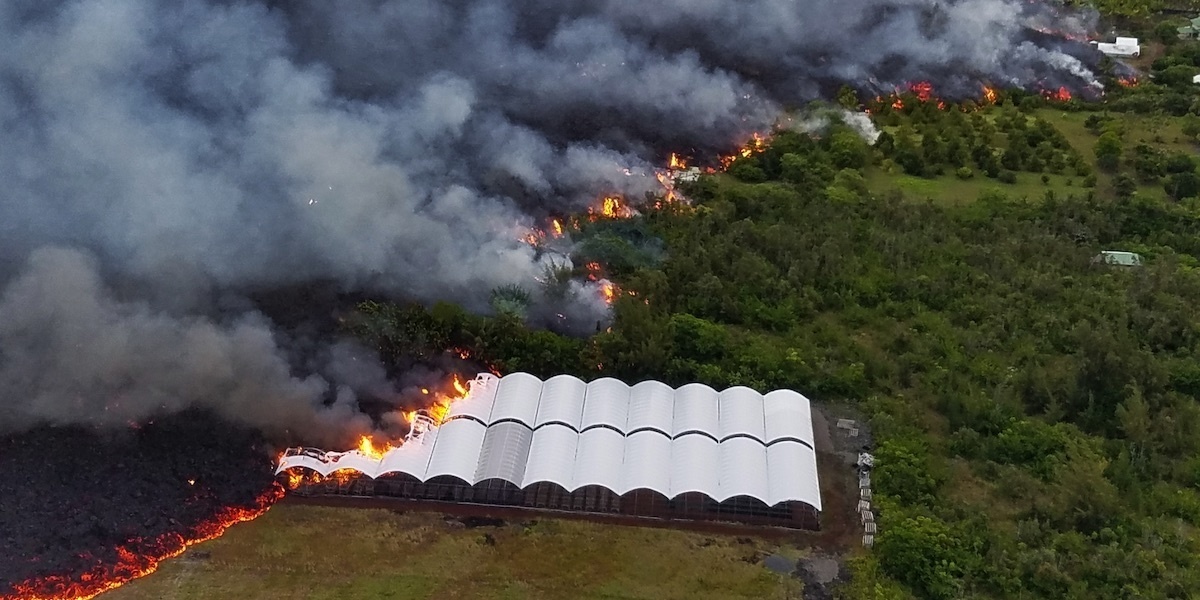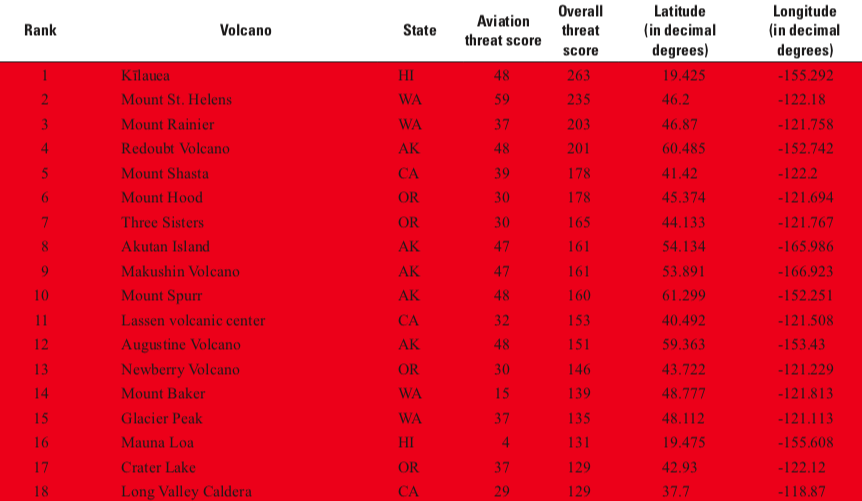

Lava from the Kilauea eruption engulfs a nursery in Kapoho, Hawaii on June 2, 2018. Hawaii Army National Guard / Sgt. John Schoebel
Did you know that the U.S. is one of the most
volcanic countries in the world? There are more than 160 active volcanoes in the nation—but which ones could cause the most damage if they erupt?
On Thursday, the U.S. Geological Survey (USGS) released an update of its national volcanic threat assessment for the first time since 2005 and categorized 18 volcanoes as “very high threat.”
At the top of the list is Hawaii’s infamous
Kilauea, which destroyed about 700 homes and terrorized parts of the Big Island for months after it erupted in May.
Which #volcanoes are the most threatening in the U.S.?
Hot off the Press – 2018 update to @USGS Volcanic Threat Assessment. https://t.co/eAzJyRzP6d
Guess what, #Kilauea is #1. pic.twitter.com/5upgfQwwz2
— USGS Volcanoes? (@USGSVolcanoes) October 24, 2018
The top five were rounded out by Mount St. Helens and Mount Rainier in Washington, Redoubt Volcano in Alaska and Mount Shasta in California.
The report doesn’t tell you which of these fire mountains will blow next—scientists can’t exactly do that yet. Rather, the aim is to help lawmakers, scientists and people living near volcanoes “mitigate damaging effects of these forces of nature,” the document states.
If you take a look at the 18 “very high threat” volcanoes, 11 of them are located in Washington, Oregon or California, where explosive and often snow- and ice-covered edifices can project hazards long distances to densely populated and highly developed areas, according to the report.
Five of them are in Alaska near important population centers, economic infrastructure or below busy air traffic corridors, the researchers determined. Similarly, two very high threat volcanoes are on Hawaii, near densely populated and highly developed areas.
Kilauea is not only the country’s most active volcano, “it’s got a lot of development right on its flanks,” government volcanologist John Ewert, the report’s chief author, told the
Associated Press.
U.S. Geological Survey national volcanic threat assessmentUSGS
According to the AP, the ranking system is based on volcano type, explosiveness, recent activity, eruption frequency, if it leads to seismic activity, proximity to human populations, past evacuations and if eruptions disrupt air traffic.
They are then sorted into five threat categories: very low, low, moderate, high and very high.
This year’s 18 big ones were the same as the ranking from 2005. The very low threat category had the greatest change from the previous report, dropping from 32 to 21 volcanoes.
So what about Yellowstone? The supervolcano is ranked at number 21 on the list under the “high risk” section. Mike Poland, scientist in charge of the Yellowstone Volcano Observatory, commented to the AP: “We don’t really have any indication that Yellowstone is doing anything abnormal.”
Climate Change Could Set Off Volcanoes https://t.co/UsDcXQFT0Q @YEARSofLIVING @ClimateReality @MichaelEMann @UCSUSA @DeSmogBlog
— EcoWatch (@EcoWatch) April 12, 2018

 233k
233k  41k
41k  Subscribe
Subscribe 
